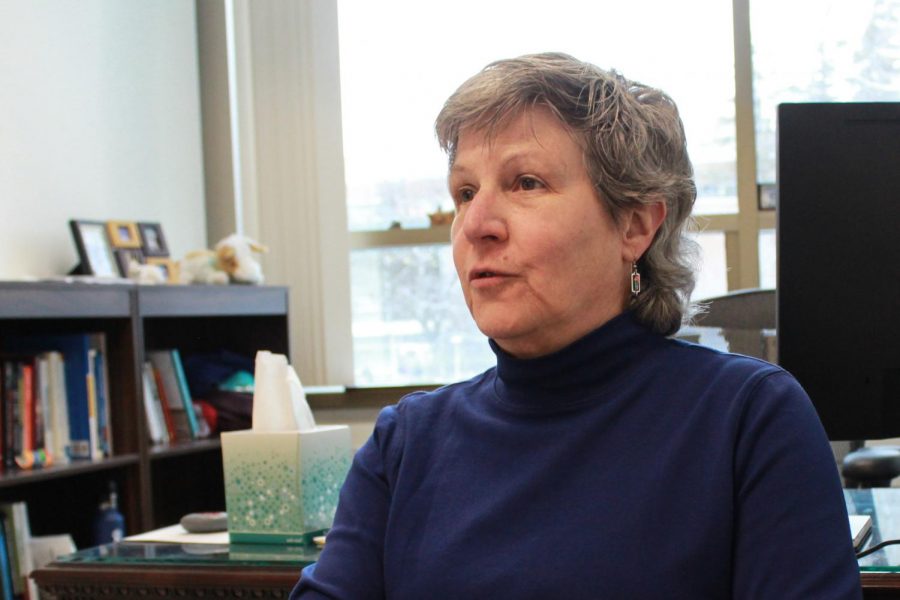Cougar Health Services presents new information on mental health
44 percent of WSU students say they are depressed; 12 percent considered suicide
Ellen Taylor, Vice Chancellor of Student Affairs, will be retiring after serving at WSU since 2018.
February 22, 2019
Cougar Health Services sent an email to WSU students regarding data on mental health Feb. 13.
The data included in the email showed that “in the past year, 44 percent of WSU students felt so depressed it was difficult to function and 12 percent seriously considered suicide,” according to the email.
Paula Adams, associate director of health promotion, said the data was collected in spring 2018 and referred to any time within the past 12 months. Adams said 16 percent of WSU students reported feeling depressed in the last two weeks, but 44 percent felt it within the past year.
She said it is important to note that feeling depressed is different from being diagnosed with depression but is still a serious issue.
Adams said 1,085 WSU students responded to a survey, which was similar to the data gathered from college campuses nationally.
“The different challenges that students are experiencing on our campus are consistent with challenges that students are experiencing across the country,” she said.
Ellen Taylor, associate vice president of student affairs at WSU, said the pressures that WSU students are experiencing right now are intense, which factors into the data.
The university is trying to deal with these issues, Taylor said, but they are not able to do it alone. She said they cannot start the conversation at age 18 or 19 and still expect to completely solve the problem.
She said the university’s goal is to expand its services in terms of mental health.
“Expanding capacity in terms of continuing to do everything we can to ensure we have counseling resources, mental health resources,” Taylor said. “But also expanding the capacity of the community and really building out the knowledge … of our students and our staff and faculty.”
Adams said there has been quality counseling services available on campus for many years, but that is not the only solution.
“We also know that given the current national context, we need to do more than provide counseling services,” she said.
Students typically end up in counseling services when they hit a crisis point, Adams said, but they need to be supported in ways so they do not end up in counseling services.
Taylor said one of the programs in place to help address mental health is Mental Health First Aid.
This program is free to students, but staff and faculty can participate for a fee, she said. It consists of an eight-hour training program, and the goal is for participants to recognize when someone needs assistance, as well as give them initial assistance before getting them more help.
Adams said another program available is Campus Connect. Though it’s specific to intervening with a person who is suicidal, she said it can be useful for skill-building in terms of any sort of crisis.
Dealing with the problem of mental health requires a coordinated and collected effort in many different areas, Adams said.
“All the research indicates, all the experts acknowledge, that it isn’t one thing that we do that is going to create a healthy mental health [environment] in our community,” she said. “It is this intertwined network of activities that we are doing from across the board that is really going to make a difference.”
Taylor said people need to realize that mental health is a normal part of life and is something that everybody deals with.
“I absolutely would love it if we would get to zero in terms of serious thoughts of suicide for example, and certainly in terms of completed suicides,” she said. “I think it is important to acknowledge that anxiety and depression are part of the human experience, and I am actually not interested in flattening out the human experience so that we don’t experience highs and lows.”









